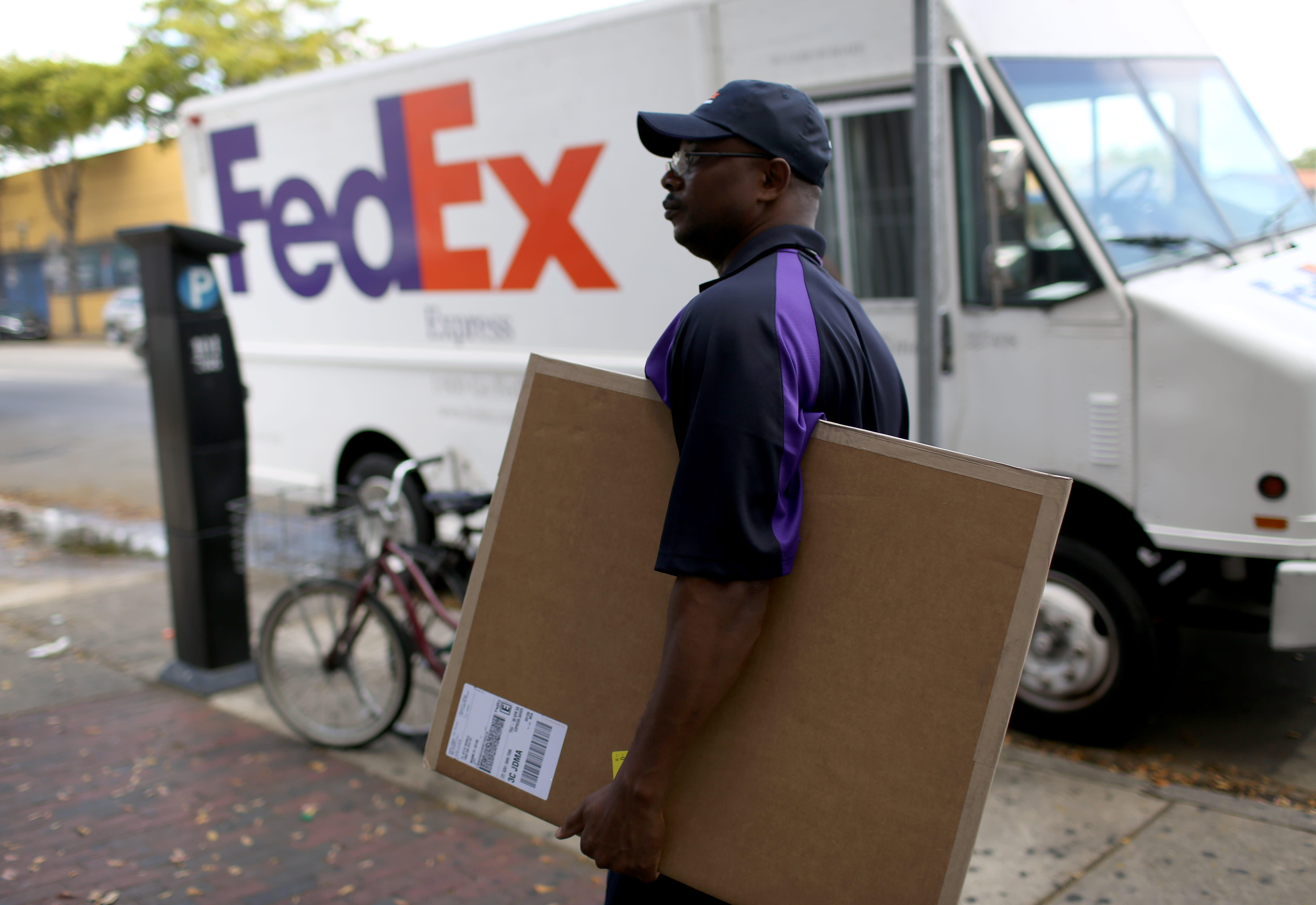
Getty Images
The CEO of FedEx challenged the publisher of The New York Times to a public debate on tax policy after an article in the paper detailed how the shipping giant effectively owed no taxes in fiscal 2018. The windfall came as a result of the Trump Administration's tax overhaul.
The Times story also noted that FedEx did not increase capital spending in fiscal 2018, after company chief Frederick Smith claimed that the corporate tax cut would spark additional investment.
The Times report spotlights FedEx as a case study of the effects of President Donald Trump's $1.5 trillion tax cut in 2018, the first year that the law took effect.
FedEx's financial filings show that the law has so far saved it at least $1.6 billion, the Times article states.
Promises from President Donald Trump and corporate chieftains that the cut would lead to more capital investment and greater economic growth have largely fallen flat, the article argues.
In a statement posted on the FedEx website, Smith fumed that the Times article was a "factually incorrect story," and an "outrageous distortion of the truth" without pointing to specific inaccuracies.
Smith also took the Times to task for its own federal income tax payments, saying that that "unlike FedEx, the New York Times paid zero federal income tax in 2017 on earnings of $111 million, and only $30 million in 2018 — 18% of their pretax book income."
"Also in 2018 the New York Times cut their capital investments nearly in half to $57 million, which equates to a rounding error when compared to the $6 billion of capital that FedEx invested in the U.S. economy during that same year," Smith added.
Smith then threw down a gauntlet.
"I hereby challenge A.G. Sulzberger, publisher of the New York Times and the business section editor to a public debate in Washington, DC with me and the FedEx corporate vice president of tax," Smith said. "The focus of the debate should be federal tax policy and the relative societal benefits of business investments and the enormous intended benefits to the United States economy, especially lower and middle class wage earners."
A Times spokeswoman told CNBC, "FedEx's invitation is clearly a stunt."
She also called it "an effort to distract from the findings of our story."
Smith had repeatedly claimed that the tax cut would lead to "a renaissance of capital investment" right after the cut took effect.
But The Times' analysis concluded that after getting roughly $1.6 billion in accumulated tax savings, FedEx used most of that cash for stock buybacks and dividend increases.
FedEx reportedly spent more than $2 billion in buybacks and dividend hikes in fiscal year 2019. That was more than double the amount the company spent on buybacks and dividends in fiscal year 2017.
Meanwhile, FedEx's capital investments have declined over the past two fiscal years. This year, the company also cut employee bonuses.
FedEx is not unique in how it used the tax cut windfall.
Across corporate America, stock buybacks hit a record $806 billion in 2018. Buybacks this year are trending not far behind that tally. Economic growth, however, rose at a slightly reduced rate of 1.9% last quarter.
Reaed More
Post a Comment